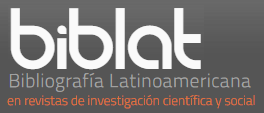Infantile behavioral changes due to toothbrushing habits
DOI:
https://doi.org/10.5433/1679-0367.1997v18n1p63Keywords:
Behavior, Toothbrushing.Abstract
This work intends to investigate the behavioral changes of 0 to 30 months babies and to associate the different patterns to the pre and post-eruptive oral phase. It was verified that when children have no teeth, most part of them (76%) have a positive behavior (D conduct) and when the eruption and cleaning procedures start there is a change for worse, passing from 76% of D conduct to 45%, showing a decrease in the predominance of the positive conduct. Another important factor verified was that mothers reported that the children are more receptive for the use of toothbrush and dentifrice than to the cleaning with gauze and dilute H202 (Hydrogen Peroxide) and they also reported that infantile toothbrushes are not adequate for children of these ages (0 to 30 months), existing the need of their adequacy to avoid that this fact deviates these children from their toothbmshing habits.
Downloads
Downloads
Published
How to Cite
Issue
Section
License
Copyright (c) 2010 Semina: Ciências Biológicas e da Saúde

This work is licensed under a Creative Commons Attribution-NonCommercial 4.0 International License.
adopts the CC-BY-NC license for its publications, the copyright being held by the author, in cases of republication we recommend that authors indicate first publication in this journal.
This license allows you to copy and redistribute the material in any medium or format, remix, transform and develop the material, as long as it is not for commercial purposes. And due credit must be given to the creator.
The opinions expressed by the authors of the articles are their sole responsibility.
The magazine reserves the right to make normative, orthographic and grammatical changes to the originals in order to maintain the cultured standard of the language and the credibility of the vehicle. However, it will respect the writing style of the authors. Changes, corrections or suggestions of a conceptual nature will be sent to the authors when necessary.
This Journal is licensed with a license Creative Commons Assignment-NonCommercial 4.0 International.

















